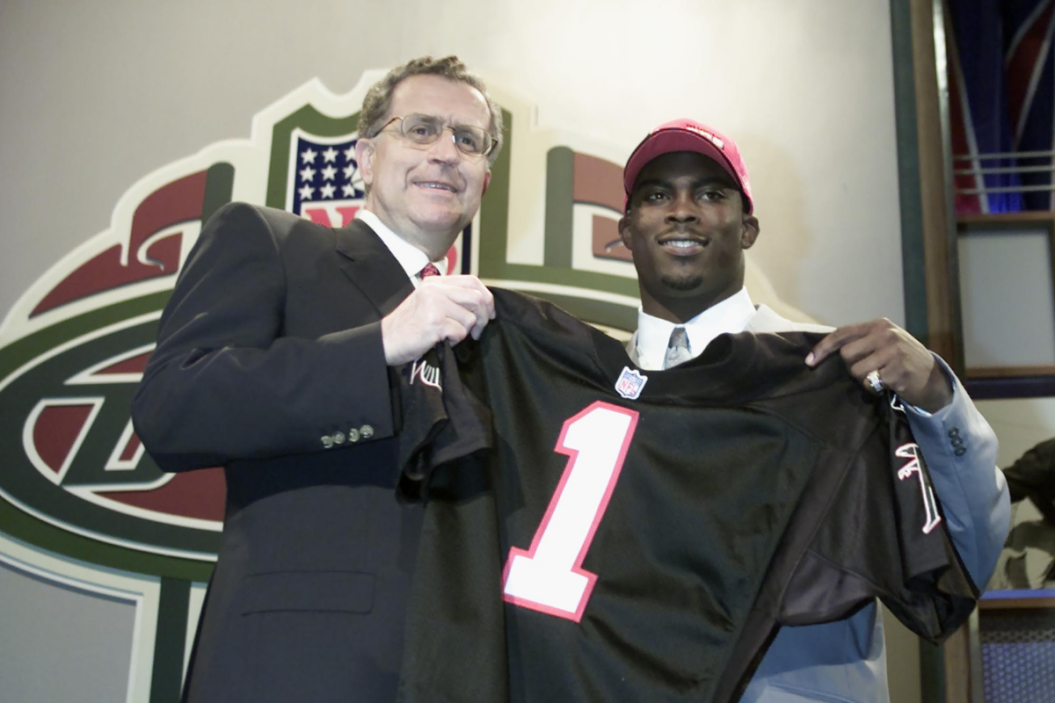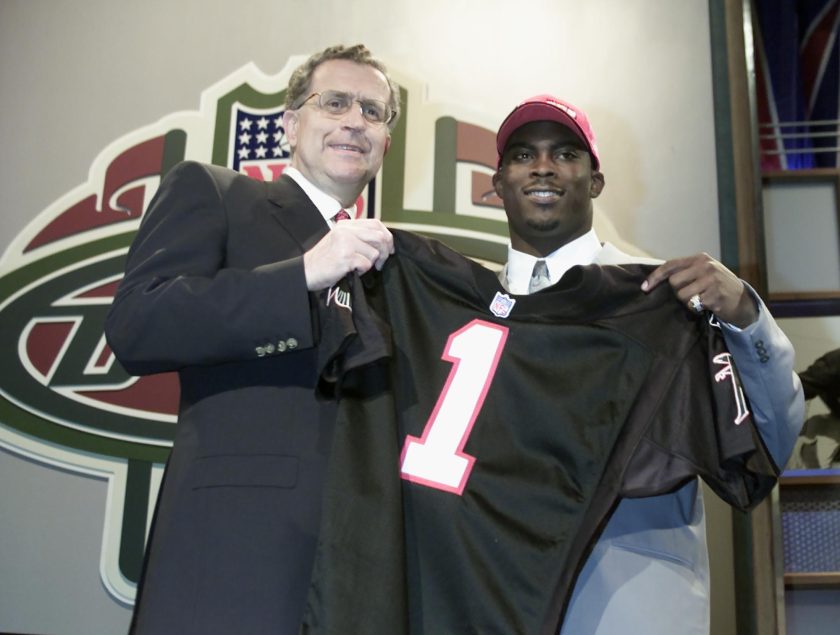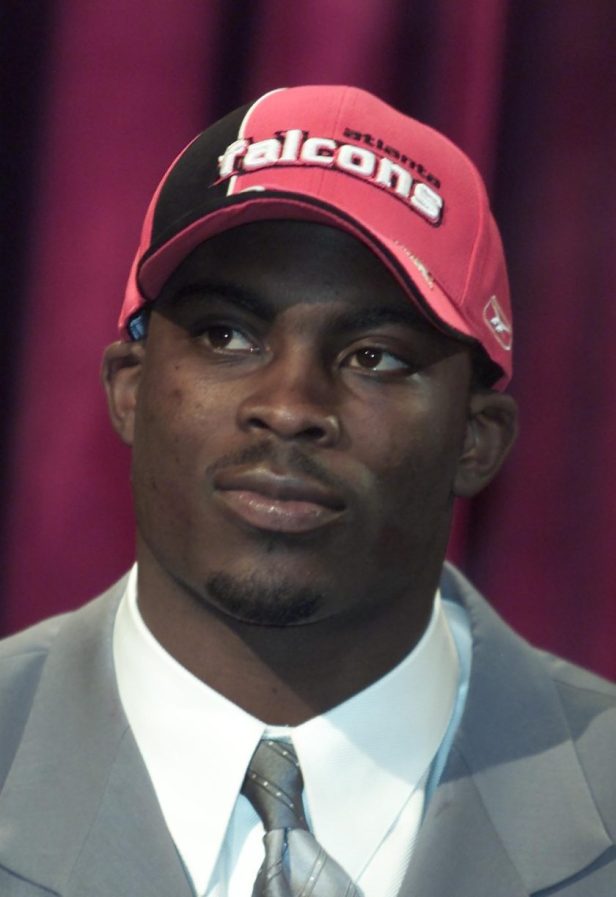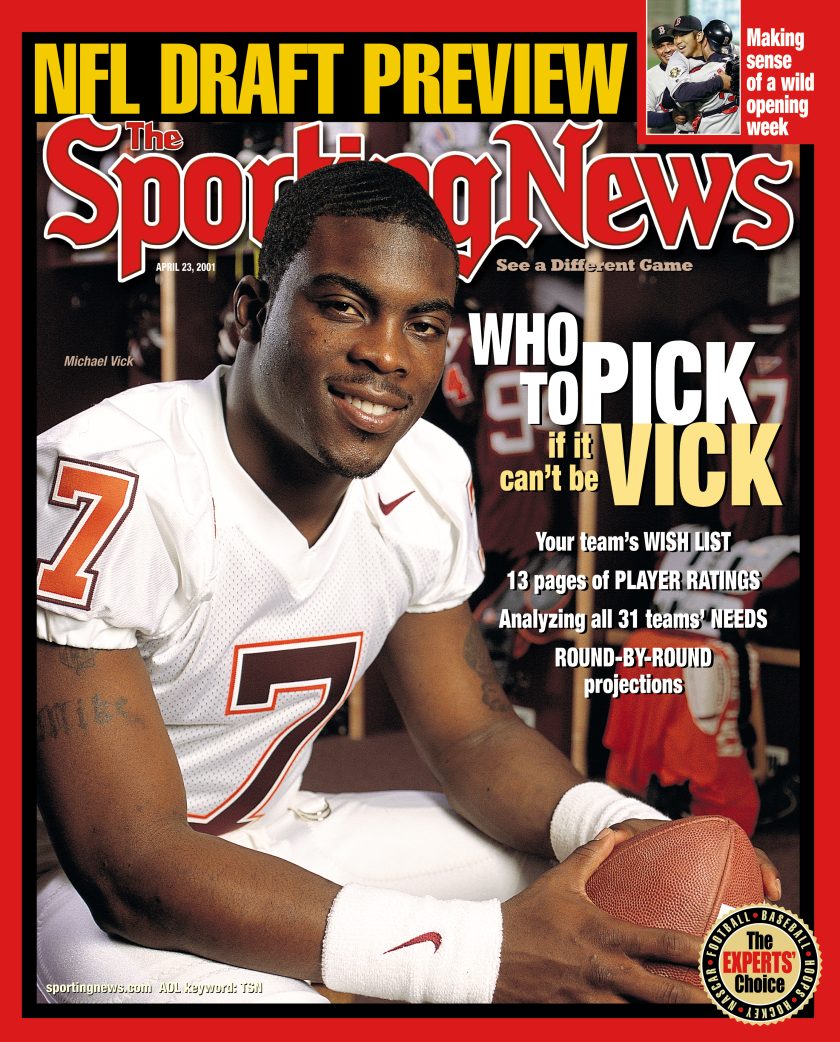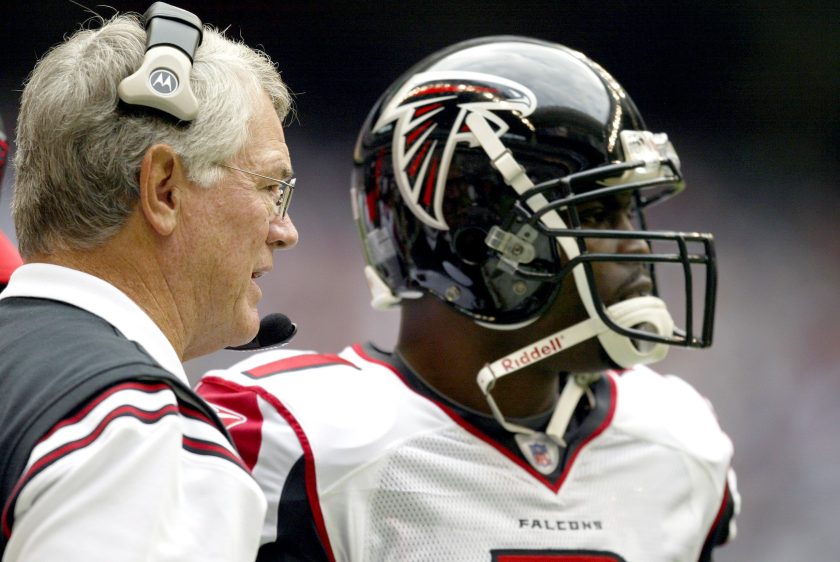Michael Vick got what he wanted.
Videos by FanBuzz
Unfortunately, it wasn't what he needed.
Sadly for the San Diego Chargers, they also didn't get anything close to what they should have out of the deal.
One of the great untold stories in NFL Draft history is that Vick, the profoundly talented runner and passer who ended up being the No. 1 pick in the 2001 NFL Draft, quietly found a way to convince the then-San Diego Chargers to not draft him.
How Michael Vick Picked His Team in the NFL Draft
The story has gone something like this: The Chargers football experts, who at the time were led by John Butler, believed that Drew Brees was a better player than Vick and, as a result, were willing to trade down from the No. 1 overall pick. The Chargers would then take running back LaDainian Tomlinson and get Brees with the first pick of the second round.
That's what happened and, ultimately, looked great for the Chargers. The success of that deal has looked even better over the years as Tomlinson ended up in the Pro Football Hall of Fame, Brees is a lock to join him and Vick's career took a series of ugly turns that detoured him from what many thought would be a Hall of Fame career.
Instead of ever winning a Super Bowl, the Falcons and Vick ended up in infamy. Meanwhile, despite taking two future Hall of Famers in the same draft, the Chargers never won a Super Bowl. Somehow, this ended up being a deal that worked for neither side.
The Chargers made the best of a bad situation and did even better to not let the story get out. Unlike when Eli Manning refused to play for the Chargers when they had the No. 1 overall pick or how John Elway refused to play for Baltimore and those situations became public, the disagreement with Vick played out quietly. In those situations, the New York Giants and Denver Broncos got the better outcomes in a franchise face and Hall of Fame quarterback, despite the Chargers and Colts becoming bruised by public perception.
"We got a call from the Chargers saying they wanted to move down and that Michael had told them he preferred to be somewhere closer to where he was from," said Harold Richardson, who was the general manager of the Falcons at the time.
Vick had grown up in Virginia and attended Virginia Tech, where he became a college football star. While the then-Washington Redskins, Carolina Panthers and Jacksonville Jaguars would have all fit the bill for what Vick wanted, none of those teams had picks in the top 10 of the draft.
The Atlanta Falcons had the fifth pick. In addition, it had (and still has) a growing Black population that the Falcons have always tried to market to. Getting a trade done with the Falcons was a perfect fit, which is why the trade was done relatively quickly and for a markedly low price in terms of draft picks.
How the Trade Affected the NFL & Vick's Career
Related: Ryan Leaf's Net Worth: How He Made (& Lost) His Football Fortune
In return for the No. 1 overall pick, the Chargers got the No. 5 pick, wide receiver Tim Dwight, a third-round pick in that draft and a second-round pick in 2002. Only three years earlier in 1998, the Chargers had traded the No. 3 overall pick, a future first-round pick, a second-round pick and three-time Pro Bowl return man Eric Metcalf for the No. 2 overall pick, which became one of the biggest NFL busts of all-time, Ryan Leaf.
"When you compared (the Vick deal) to the (John) Elway deal, it wasn't even as expensive as that one," said Richardson, who had been a coach in Denver under long-time friend and head coach Dan Reeves, who was the head coach of the Falcons.
By comparison, the Vick deal was done almost completely based on expediency despite Vick's outrageous talent.
"The Chargers were really motivated and that's what drove this," Richardson said. "Now, Dan was motivated on this deal, too. You get a chance to get a quarterback as talented as Michael Vick, you take it. Even though we had been to the Super Bowl with Chris Chandler, we all knew Chris was at the end of his career. This was a perfect situation at the time, but it wasn't like we were asking for it. Again, the Chargers were motivated."
The deal came together the night before the draft. The news was considered massive and took the NFL by surprise because Vick was considered such a singular talent. Before Vick's final season at Virginia Tech in 2000, there were columnists in many NFL cities claiming that their teams should tank the season to get in position for Vick.
Unfortunately, they didn't know that Vick was so closely tied to staying at home emotionally and that the emotional tie would lead him down the wrong path. Vick was unable to separate himself from many of the friends he grew up with. He and those friends ended up starting a dogfighting ring that eventually led to Vick going to prison.
Additionally, the Falcons made the situation worse after 2003 by firing Reeves, a disciplinarian who worked with Vick extensively early in his career.
"I really think that was a huge problem for Michael. He didn't have Dan around long enough to really set him up for how to run his career," Richardson said.
As for the Chargers, getting Tomlinson helped make them one of the top contenders in the NFL for most of the 2000s, including a 14-2 season in 2006
that ended in an upset loss to the New England Patriots in the playoffs. While Brees hurt his shoulder and eventually was replaced by Philip Rivers in San Diego, he went on to lead the New Orleans Saints to a Super Bowl title.
